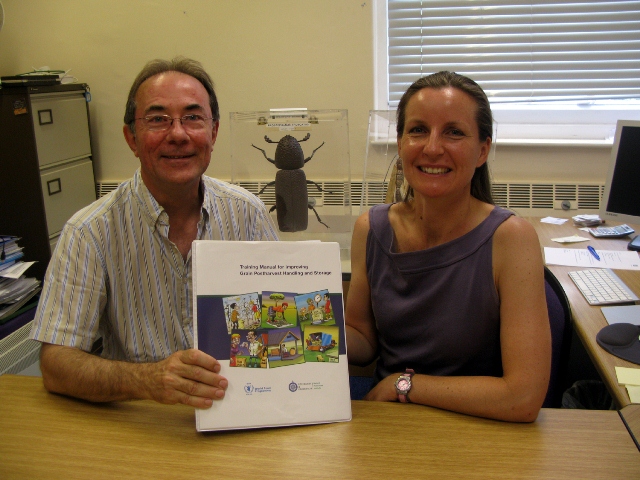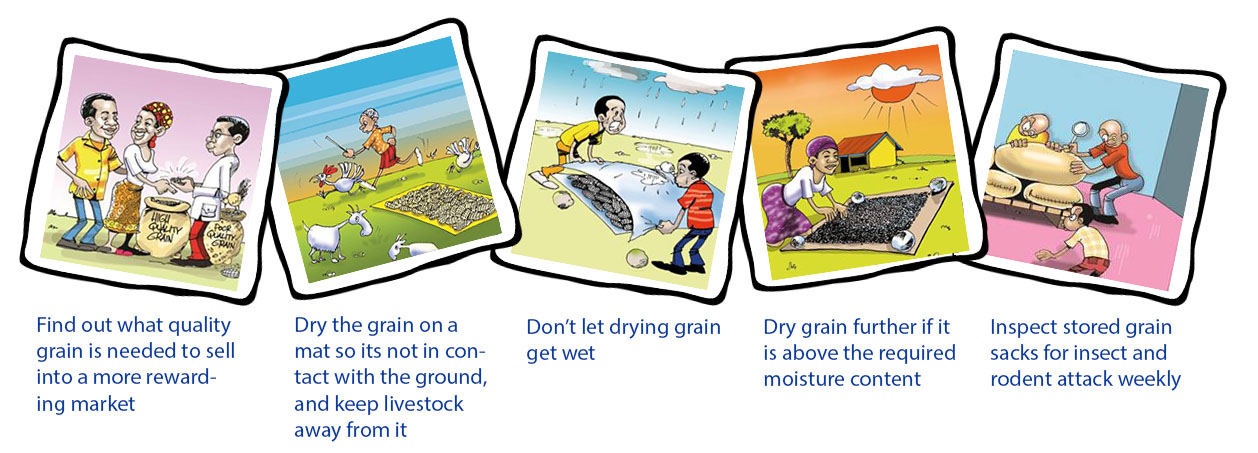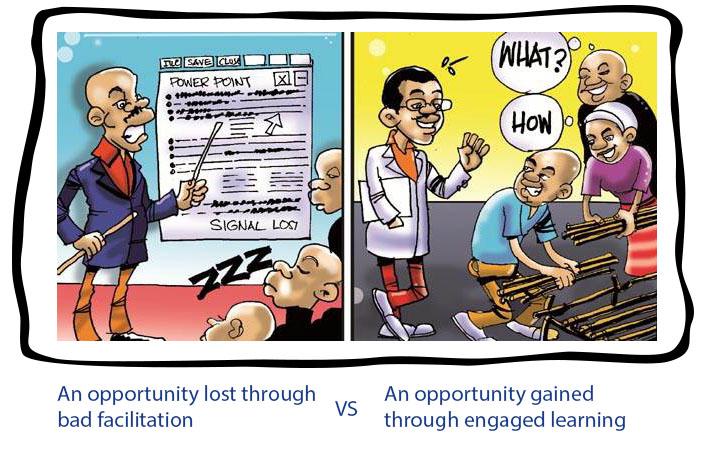
Professor Rick Hodges and Dr Tanya Stathers, of the Natural Resources Institute (NRI) have been working with the UN World Food Programme (WFP) to develop a "Training Manual for Improving Grain Postharvest Handling and Storage".
The manual will initially support WFP's staff and partners working within its Purchase for Progress (P4P) initiative, to train farmers and farmers' groups throughout Africa to supply good quality grain to WFP. 4,000 English language versions of this loose-leaf manual have already been sent to Africa and a further 1,000 in French will shortly be ready for shipment.
The P4P initiative is creating opportunities for smallholders to link with and sell into markets, simultaneously helping them to improve their own food security, through knowledge of how to better store and handle their own food grain and improved incomes from sales of good quality grain. Grain purchased from smallholder farmers by WFP is distributed both locally and regionally as food aid.
Drawing on existing trainings delivered in focal P4P countries, the manual gives recommendations on approaches to training as well as technical details of how grain should be handled and stored to assure good quality at the household level, at the first aggregation point and in warehouses. A CD holding a set of key presentations and facilitators' notes accompanies the manual.
Speaking about the development of the new training manual, Tanya and Rick explained: "We are both committed to supporting smallholder agriculture, so being able to assemble a large body of practical advice on grain quality management within a training framework has been a unique challenge and a privilege."
The manual uses cartoons to find simple and clear ways of expressing the basic messages of postharvest handling and storage at different scales. These cartoons are put to use in both the text of the manual and in several fold out step-by-step posters.

The loose-leaf style was chosen so that trainers in different African countries can customise the manual by adding in details of their specific standards and grain protectant recommendations. Further customisation is possible by inserting local language captions into the text-free set of training posters, which is provided.
Rick and Tanya believe that this training manual will be of great value to all those concerned with helping farmers and farmers' groups to deliver better quality grain: "We hope that following its wide use in the field, many new ideas and potential improvements will be suggested, so we look forward to it becoming a living manual, growing and developing to meet trainers' needs."
Longer-term plans include dissemination of the manual in Asia and Central America, which will require customisation of the cartoons and crop emphasis.


